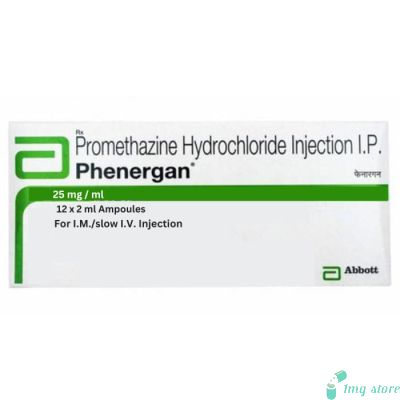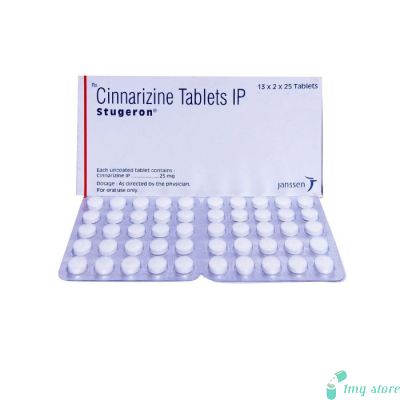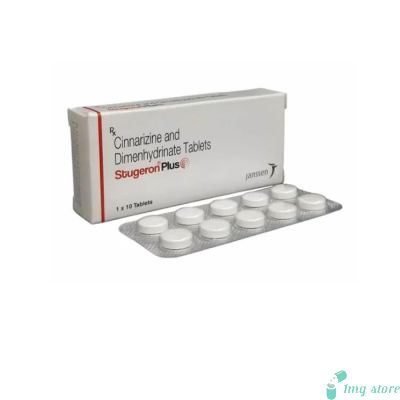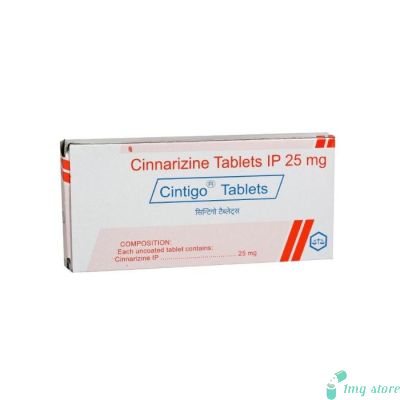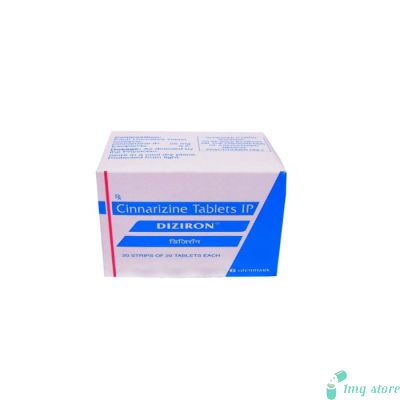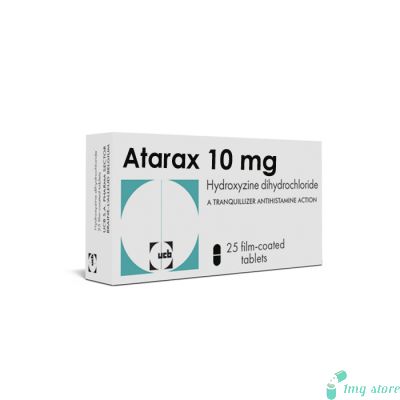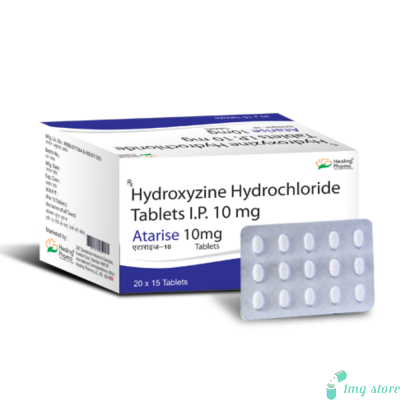Phenergan Tablet (Promethazine)
Buy Phenergan Tablet, Promethazine, commonly known by its brand name Phenergan, is a medication that belongs to the class of antihistamines. It is primarily used to manage various allergic reactions, motion sickness, and nausea and vomiting associated with certain medical conditions or treatments.
Promethazine Tablet (Phenergan): Providing Relief from Allergy Symptoms
Promethazine, commonly known by its brand name Phenergan, is a medication that belongs to the class of antihistamines. It is primarily used to manage various allergic reactions, Motion Sickness, and nausea and vomiting associated with certain medical conditions or treatments. Promethazine works by blocking histamine receptors in the body, thereby reducing the effects of histamine, a chemical released during allergic reactions. This comprehensive guide aims to provide essential information about Promethazine tablets, including dosage, uses, side effects, precautions, drug interactions, and more.
Dosage Information
The dosage of Promethazine tablets can vary based on the patient's age, medical condition, and individual response to treatment. It is crucial to follow the healthcare provider's instructions and the medication's packaging label. The typical dosages for various conditions are as follows:
1.1 Allergic Rhinitis and Urticaria (Hives):
Adults: 25 mg to 50 mg orally every 4 to 6 hours as needed.
Children (6 to 12 years): 12.5 mg to 25 mg orally every 4 to 6 hours as needed.
Children (under 6 years): Use is not recommended due to the risk of serious side effects.
1.2 Motion Sickness:
Adults: 25 mg orally 30 to 60 minutes before travel and repeat every 8 to 12 hours as needed.
Children (2 to 12 years): 12.5 mg to 25 mg orally 30 to 60 minutes before travel and repeat every 8 to 12 hours as needed.
Children (under 2 years): Use is not recommended.
1.3 Nausea and Vomiting:
Adults: 12.5 mg to 25 mg every 4 to 6 hours as needed.
Children (2 to 12 years): 12.5 mg every 4 to 6 hours as needed.
Children (under 2 years): Use is not recommended.
1.4 Sedation and Preoperative Use:
The recommended dosage for sedation and preoperative use may vary depending on the patient and the procedure. It is essential to consult a healthcare professional for appropriate dosing in these situations.
It is crucial to avoid exceeding the recommended dosage or using Promethazine for an extended period without medical supervision, as it may lead to adverse effects and drug dependence.
Promethazine 25mg Tablet:
Promethazine 25mg tablet is a medication that belongs to the antihistamine class. It is commonly prescribed to manage allergic rhinitis, hives, motion sickness, and Nausea. The 25mg dosage is suitable for adults and children over the age of 12 years. It helps alleviate symptoms such as sneezing, itching, and vomiting.
Promethazine 50mg Tablet:
Promethazine 50mg tablet is another formulation of the antihistamine medication. This higher dosage is typically prescribed for adults to manage more severe symptoms of allergic reactions, motion sickness, and nausea. It is essential to follow the recommended dosage and consult a healthcare professional before using this strength.
Promethazine Tablet Price:
At our website 1mgstore.com, the price of Promethazine tablets may vary based on the dosage strength and the number of tablets per pack. We strive to offer competitive prices and ensure genuine quality products. Customers can find detailed product information, including prices, and conveniently place orders through our online platform.
Before starting Phenergan Tablet (Promethazine) treatment, individuals should be aware of certain precautions
- Allergy and Sensitivity: Patients with a known hypersensitivity to Promethazine or other antihistamines should avoid its use.
- Respiratory Conditions: Promethazine should be used with caution in patients with respiratory conditions, such as asthma or chronic obstructive pulmonary disease (COPD), as it may cause respiratory depression.
- Glaucoma: Individuals with glaucoma, a condition characterized by increased pressure within the eyes, should exercise caution while using Promethazine, as it can worsen intraocular pressure.
- Seizure Disorders: Promethazine should be used cautiously in individuals with a history of seizure disorders, as it may lower the seizure threshold.
- Pregnancy and Breastfeeding: Pregnant and breastfeeding women should consult their healthcare provider before using Promethazine, as its safety during these periods is not well-established.
- Alcohol and CNS Depressants: Combining Promethazine with alcohol or other central nervous system (CNS) depressants can lead to increased drowsiness and respiratory depression. Avoiding alcohol and other sedatives is advisable during Promethazine therapy.
- Elderly Patients: Older adults may be more sensitive to the sedative effects of Promethazine, increasing the risk of falls and confusion. Lower dosages and close monitoring are essential in this population.
Phenergan Tablet (Promethazine) has several medical uses, including:
- Allergic Rhinitis: Promethazine helps alleviate symptoms of allergic rhinitis, such as sneezing, itching, and a runny or stuffy nose.
- Urticaria (Hives): The medication can effectively relieve itching and swelling caused by hives.
- Motion Sickness: Promethazine is useful in preventing and treating motion sickness, a condition triggered by movement during travel.
- Nausea and Vomiting: Promethazine is commonly prescribed to manage nausea and vomiting caused by various factors, such as surgery, chemotherapy, or certain medical conditions.
- Sedation and Preoperative Use: In some cases, Promethazine is used as a sedative agent to induce calmness and reduce anxiety before medical procedures or surgery.
While Promethazine is beneficial for the conditions mentioned above, it should only be used under the guidance of a healthcare professional who can assess the appropriateness of its use and determine the correct dosage.
Phenergan Tablet (Promethazine) like any medication, may cause side effects in some individuals
Common side effects include:
- Drowsiness and Dizziness: Promethazine can induce drowsiness and dizziness, affecting the ability to concentrate and perform tasks requiring alertness. It is crucial to avoid driving or operating heavy machinery while under the influence of this medication.
- Dry Mouth: Some people may experience a dry mouth while taking Promethazine. Staying hydrated and using sugarless gum or candies can help alleviate this symptom.
- Blurred Vision: Promethazine may cause temporary visual disturbances, such as blurred vision.
- Constipation: The medication can lead to constipation, which can be managed by increasing fluid intake and dietary fiber.
- Urinary Retention: In some cases, Promethazine may cause difficulty in passing urine.
- Confusion and Disorientation: Promethazine can cause confusion and disorientation, especially in older adults.
While these side effects are generally mild and resolve on their own, patients experiencing severe or persistent symptoms should seek medical attention promptly.
Answers to Common Inquiries About Phenergan Tablet (Promethazine)
FAQ 1: Can Promethazine be used to treat common cold symptoms?
Answer: No, Promethazine is not recommended for treating common cold symptoms, such as runny nose and sneezing. It is more suitable for managing allergic rhinitis and hives. Over-the-counter cold remedies may be more appropriate for relieving cold-related symptoms.
FAQ 2: Is it safe to take Promethazine during pregnancy?
Answer: Pregnant women should consult their healthcare provider before using Promethazine. While it is generally not recommended during pregnancy due to limited safety data, the doctor may consider its use in specific cases where the benefits outweigh the potential risks.
FAQ 3: Can Promethazine be given to young children for motion sickness?
Answer: Promethazine can be given to children aged 2 years and older for motion sickness. However, it should be used cautiously and according to the doctor's instructions. Children under 2 years should not use Promethazine without medical guidance.
FAQ 4: Can Promethazine be used for insomnia or sleep problems?
Answer: While Promethazine may induce drowsiness, it is not recommended as a treatment for insomnia or sleep problems. It is primarily used for managing allergic reactions, motion sickness, and nausea and vomiting related to medical conditions.
FAQ 5: Does Promethazine interact with over-the-counter antihistamines?
Answer: It is generally advised to avoid combining Promethazine with other antihistamines, including over-the-counter ones, to prevent excessive drowsiness and other adverse effects. If you need to take multiple antihistamines, consult your healthcare provider for proper guidance and avoid duplicative ingredients.
Some notable drug interactions with Phenergan Tablet (Promethazine) include:
Promethazine can interact with other medications, potentially affecting their efficacy or increasing the risk of side effects. Inform your healthcare provider about all the medications, supplements, or herbal products you are currently taking.
- CNS Depressants: Combining Promethazine with other CNS depressants, such as benzodiazepines, opioids, or certain antidepressants, can lead to excessive sedation and respiratory depression.
- Anticholinergic Drugs: Concurrent use of Promethazine with other anticholinergic medications may increase the risk of side effects such as dry mouth, constipation, and urinary retention.
- MAO Inhibitors (MAOIs): MAOIs should not be used in combination with Promethazine due to the risk of serious and potentially life-threatening reactions.
- Epinephrine: Promethazine can interfere with the effectiveness of epinephrine used in the treatment of severe allergic reactions.
- Lithium: The combination of Promethazine and lithium may result in increased lithium levels in the blood, leading to lithium toxicity.
It is crucial to disclose all medications you are taking to your healthcare provider to prevent harmful drug interactions.
| Manufacturer | : | Abbott, India |
| Equivalent Brand | : | Phenergan |
| Generic Search | : | Promethazine |







